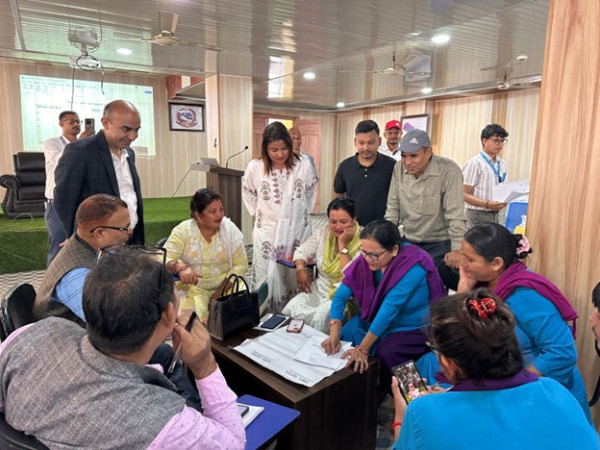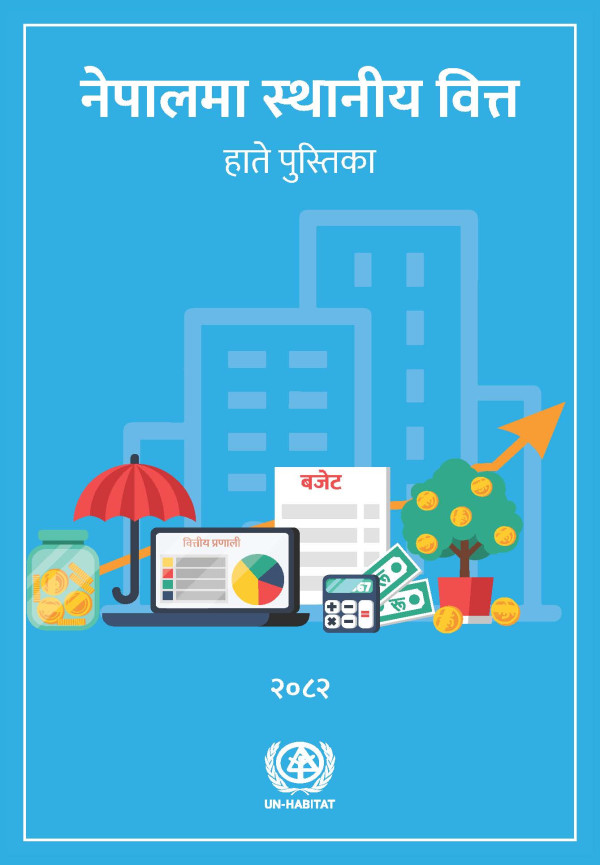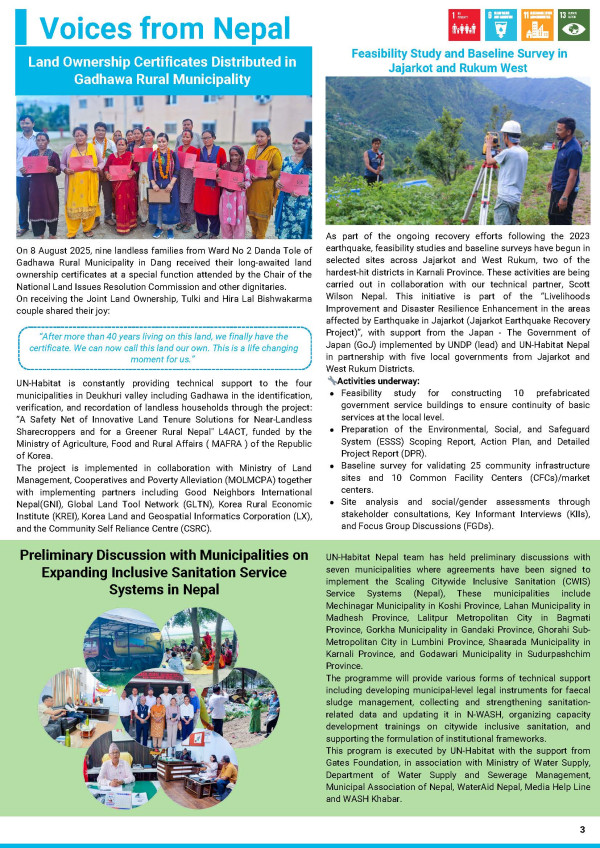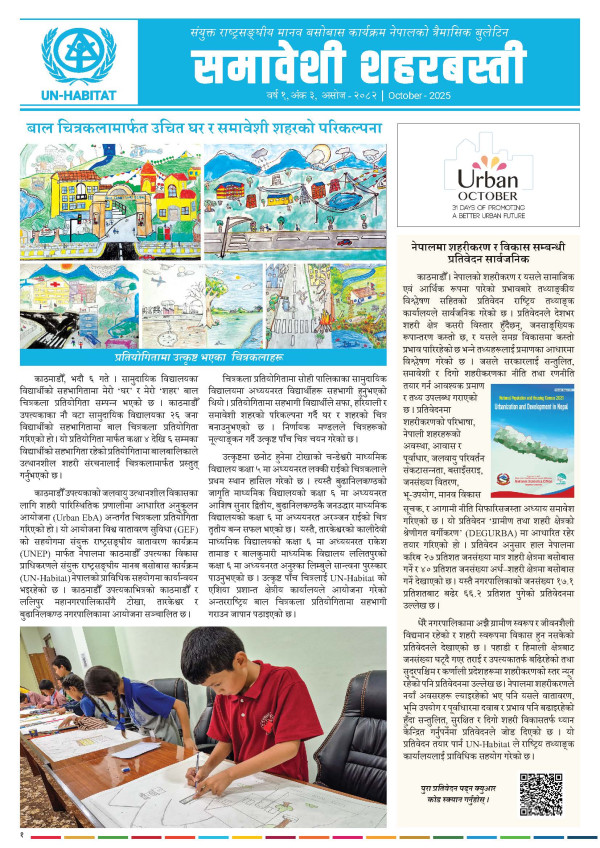Lamkichuha Municipality Hosts Orientation and Testing Workshop on Gender and Climate Responsive Urban Planning Guidelines

Lamkichuha, Kailali | 15 October 2025
The Cities 4 Women Project, implemented by UNOPS, UN-Habitat, and Cities Alliance, organized an orientation and testing workshop on the Gender and Climate Responsive Urban Planning Guidelines on 15 October 2025 in Lamkichuha Municipality, Kailali. The initiative, led by the Ministry of Urban Development (MoUD), aims to promote inclusive and climate-resilient municipal planning approach through meaningful participation and local ownership, that ingrates urban planning withing the municipal planning trough a step-by-step process.
The workshop which brought together 77 participants, including 32 females and 45 males, representing various municipal divisions, civil society, and development partners was chaired by Mayor Sushila Shahi and hosted by Deputy Mayor Junu Chaudhary, moderated by Cities 4 women focal point Hemanta Regmi. During the opening session, Ms. Aruna Thapa Magar, Project Coordinator of Cities 4 Women, emphasized the importance of local participation and shared responsibility in integrating gender and climate perspectives into municipal planning. Mr. Om Dharananda Rajopadhyaya, Team Leader of the Expert Group, highlighted the significance of testing and contextualizing the guidelines to make them locally relevant and practical, while Urban Planning Expert Mr. Kumar Dhamala elaborated on the detailed steps for implementing the framework at the municipal level.
The acting Chief Administrative Officer of
Lamkichuha municipality, Bikram Chaudhari, emphasized the importance on
advancing Lamkichuha municipality as a resilient, vibrant and smart city. He
said, "Our municipality is inclusive not only culturally, socially and
economically but also ecologically, as it encompasses urban, peri-urban and
rural areas. In this situation, once the guideline is approved, we need to
seize the opportunity to implement it in our cities so that it will guide us in
making climate-resilient cities in this municipality."
Similarly, Chairperson of ward no-4, Tara
Prasad Adhikari, underscored the importance of testing of the guideline as an
opportunity for local representatives to provide feedback on the working
document. He said that the group discussion and activity approach proved
impressive in identifying the vision of Lamkichuha municipality.
Participants engaged in group discussions to map and derive the municipality’s vision, mission, and goals in alignment with the draft guideline. These discussions encouraged reflection on gender equality, social inclusion, and climate resilience in the context of Lamkichuha’s urban development priorities. Through this participatory process, stakeholders also conducted strengths, weaknesses, opportunities, and challenges (SWOC) analysis of existing policies and practices, helping to identify areas for improvement.
The workshop proved valuable in collecting feedback and recommendations from municipal representatives and other stakeholders, which will help refine the guidelines to ensure it is both practical and implementable at the local level. It also enhanced participants’ understanding of inclusive urban planning processes and strengthened collaboration among municipal officials and development partners. The event not only served as a platform for dialogue and learning but also fostered a strong sense of ownership among stakeholders in shaping Lamkichuha Municipality’s vision for a more inclusive, gender-responsive, and climate-resilient urban future.





